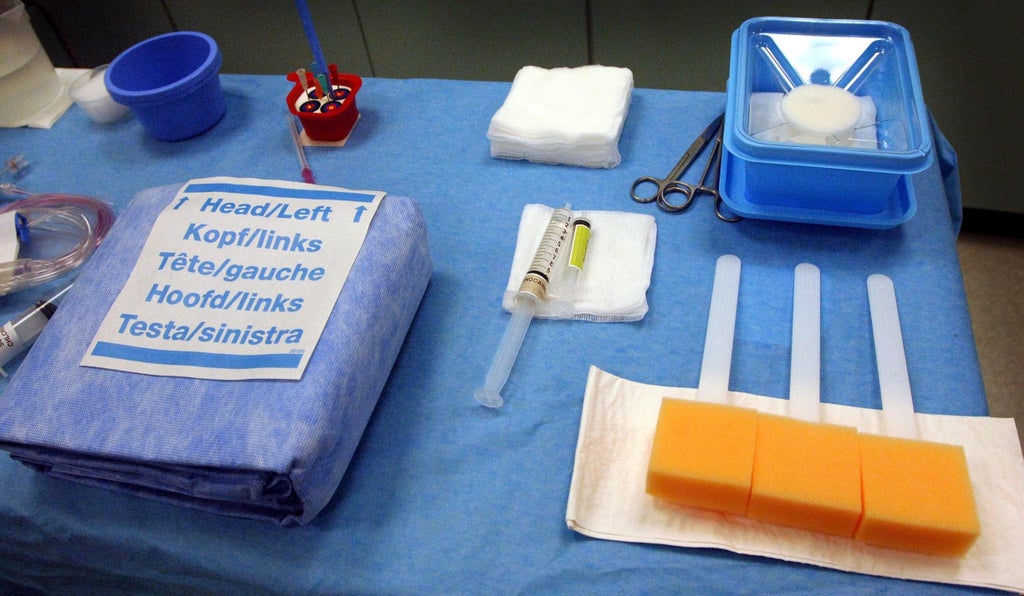
There have been nearly 100 cases of a foreign object – including drill bits – left inside NHS patients by mistake, according to a new analysis.
Some 407 “Never Events” – things so serious they should never happen – were recorded in the NHS in England from April 2021 until March 2022, figures examined by the PA news agency show.
This is the equivalent of nearly eight every week and is an increase from the same period the year before, which had 364 in total.
Overall, there were 98 cases of a foreign object being left inside a patient after a procedure.
Vaginal swabs were left in patients 32 times and surgical swabs were left 21 times.
Some of the other objects left inside patients included part of a pair of wire cutters, part of a scalpel blade, and the bolt from surgical forceps.
On three separate occasions over the year, part of a drill bit was left inside a patient.
One woman had her ovaries removed by mistake when the plan was to conserve them, the data showed, while six patients had injections to the wrong eye.
Overall, there were 171 cases of wrong site surgery.
The wrong hip implant was undergone 12 times, a wrong knee implant was done 11 times, and patients were connected to air instead of oxygen 13 times.
The wrong blood was transfused for seven people and one patient had a procedure to their breast that they had not consented to.
Never Events are defined by the NHS as “serious, largely preventable patient safety incidents that should not occur if healthcare providers have implemented existing national guidance or safety recommendations”.
We are implementing the NHS Patient Safety Strategy which is designed to support staff to provide safe care and learn lessons
The data also showed that patients were administered an overdose of the immunosuppressant Methotrexate twice, and an overdose of insulin was administered 11 times.
These figures are provisional as a further 29 cases occurred that fall under the “Serious Incidents” category that do not yet fit the definition of a Never Event, but are under local investigation.
This data also shows the difference in the reporting of errors between NHS trusts, with Manchester University NHS Foundation Trust reporting the highest number of 11 in total.
Nottingham University Hospitals NHS Trust and Sandwell and West Birmingham University Hospitals NHS Trust both reported 10 in total, followed by Gloucestershire Hospitals NHS Foundation Trust, Liverpool University Hospitals NHS Foundation Trust and University Hospitals of Leicester NHS Trust, and Worcestershire Acute Hospitals NHS Trust, who all reported nine each.
An NHS spokesperson said: “While these events are extremely rare, and NHS staff are working hard to provide safe care to patients, it is important that events are reported and learned from so that they can be prevented in the future.”
A Department of Health and Social Care spokesperson said: “Patient safety is a top priority for the Government and these unfortunate events – although very rare – can have a serious physical and psychological impact on patients.
“We are implementing the NHS Patient Safety Strategy which is designed to support staff to provide safe care and learn lessons.
“There are record numbers of nurses, doctors and overall staff working in the NHS, and we have set out our plan to tackle the Covid backlog, backed by record investment.”







